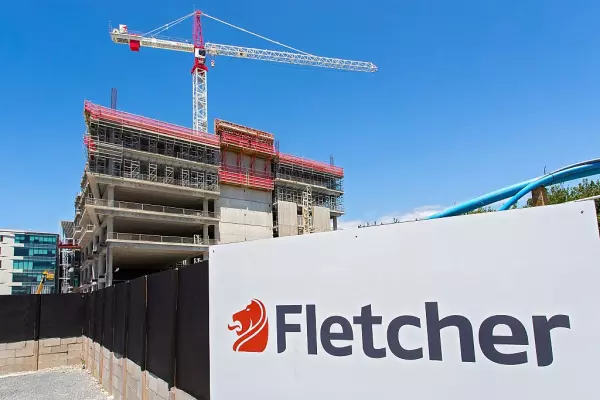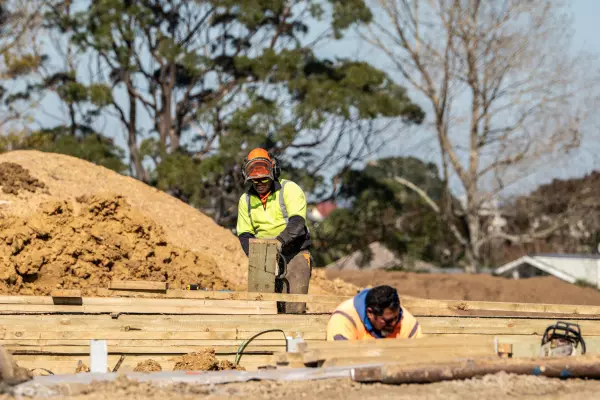The air seems to finally be coming out of New Zealand’s housing bubble.
The latest third-quarter sales data from property analytics group Corelogic suggests the post-pandemic buying surge has peaked, with both sales and prices expected to settle in the coming months.
Chief economist Kelvin Davidson said the pace of price growth through the country has cooled from a quarterly rate of 8.1% in April to 4.8% in September.
While that's still "pretty strong", he said the slowdown is genuine, and it has further to run.
Davidson expects any immediate “post lockdown” bounce – when Auckland's extended covid lockdown ends – to be brief.
Real Estate Institute index numbers show house prices tracking up by 30.4% for the 12 months to September, with the countrywide median price now at $795,000. That’s down 6.5% on August.
Auckland median prices were also down month-on-month, from $1.2 million to $1.15m.
Davidson said some other areas had more pronounced dips; values in Rotorua are down 2.4% over the past three months, Waikato homes are down 1.9% and southern Dunedin down by 2.2% through September.
It was a similar picture for rentals across urban NZ, with Trademe's national median rent down by $15 for September at $535 – the first month-on-month drop in eight months.
Property sales director of the auction site Gavin Lloyd said while stalled rentals could reflect the impacts of August's national covid lockdowns, "what we have seen is that market activity didn't bounce back in September".
Enquiries dried up in Auckland in particular – down 39% year-on-year to September – helping pull demand down as a whole by 14% year-on-year. There were stand out regions, Lloyd said, with enquiries up 35% in Canterbury and 27% in Manawatu.
Vendors to adjust
In the sales market, Corelogic's Davidson said the “patchy” regional picture is likely to become more noticeable as buyers sit back and "vendors adjust".
Corelogic is forecasting price growth to be down to single digits next year, at about the 5% mark, as the tight listings situation eases and more sellers come forward to “lock-in” their recent gains.
Official cash rate (OCR) increases, and the “long list” of government and Reserve Bank mechanisms to slow the housing market, will also play a significant part in that.
That includes low gross rental yields and tighter regulation such as 40% deposits and the phased removal of interest deductibility.
ANZ senior economist Miles Workman agrees house prices are above sustainable levels, though he isn’t convinced there will be a dramatic correction.
While he expects to see a “few negative months” of house price inflation on the back of a rate rise and listings increase over the summer, he doesn’t think it’s enough to shift annual inflation into the red.
He said the high starting point for house prices mean that even a 10% decline will only take prices back to where they were in March this year.
The bank is expecting the OCR to rise by another 1.5 basis points next year.
High debt
Corelogic data shows the value of residential property in NZ is now $1.62 trillion, with mortgages secured against about a fifth of that.
However, household debt remains high relative to income, which to some extent is only sustainable because of low interest rates, Davidson said.
He warns there is a risk of buyers "getting complacent" about mortgage rate rises given a typical one-or-two-year fixed rate could be above 4% next year.
While that’s low by past standards, “it’s a big jump from where they have been and hence a large rise in mortgage repayments too, which could have a more significant impact on household expenses than some might be expecting”.
It’s about to get harder for first home buyers as well, with the low deposit allowance cut by the Reserve Bank from 20% of lending to only 10% from next month.
Davidson expects investor market share of property purchases to continue trending down, from its current 24% to about 20% in the coming months.














